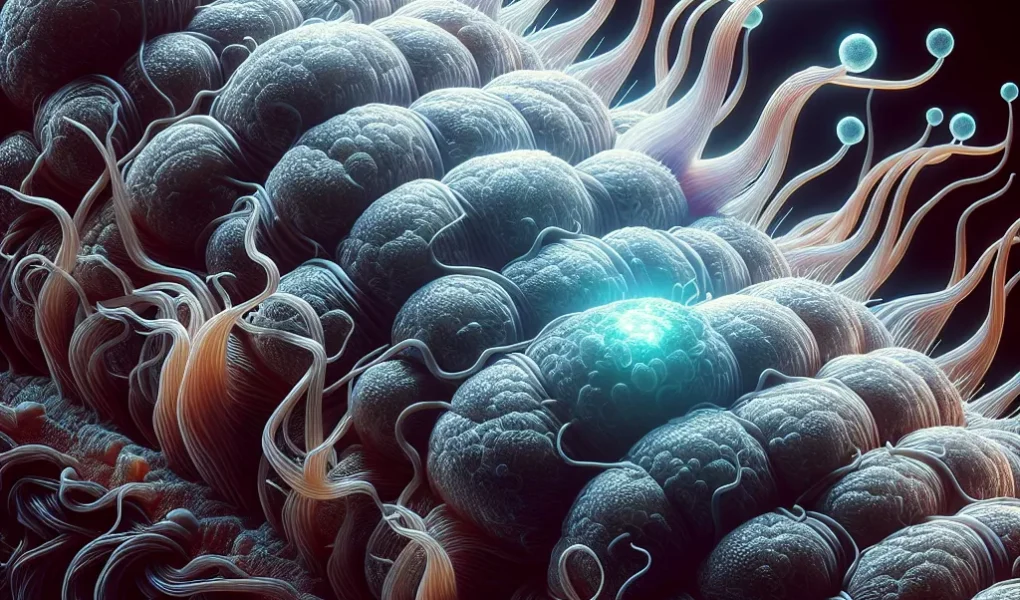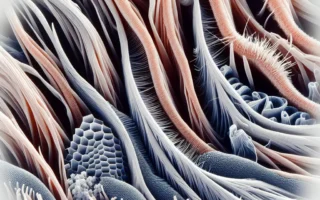The Importance of Protein in Hair Health
Protein is an essential component of healthy hair, playing a crucial role in maintaining its strength, structure, and overall appearance. The hair shaft is primarily composed of a protein called keratin, which provides the necessary structure and support. Without an adequate amount of protein, hair can become weak, brittle, and prone to damage.
Ensuring that your hair receives an adequate amount of protein is vital for maintaining its health and vitality. This can be achieved through the use of protein-infused haircare products, such as shampoos and conditioners specifically formulated to replenish protein levels in the hair. Additionally, a diet rich in protein, including sources such as eggs, fish, and nuts, can contribute to the overall health of your hair.
Furthermore, regular protein treatments and masks can help to fortify the hair and protect it from environmental stressors. By understanding the importance of protein in hair health, individuals can take proactive steps to maintain strong, resilient, and lustrous hair.
How Protein Affects Hair Growth and Strength
Understanding the role of protein in haircare is crucial for maintaining healthy and strong hair. Protein plays a significant role in hair growth and strength, making it an essential component of any effective haircare routine. The hair shaft is composed primarily of a protein called keratin, and adequate protein intake is necessary to support the growth and repair of hair.
Proteins are made up of amino acids, which are the building blocks of hair. Without an adequate supply of protein, the hair can become weak, brittle, and prone to breakage. Ingesting protein-rich foods or using protein-based hair products can help fortify the hair shaft, improving its strength and resilience. Additionally, protein treatments and masks can provide an extra boost of nourishment for damaged or weakened hair.
When the hair lacks sufficient protein, it may enter a “resting phase,” causing a slowdown in hair growth. This can lead to thinning and overall reduced hair density. By incorporating protein into the haircare routine, individuals can support the natural growth cycle of their hair and promote stronger, healthier strands.
In conclusion, protein plays a vital role in maintaining the strength and growth of hair. Whether through dietary choices or targeted haircare products, ensuring adequate protein intake is essential for achieving and maintaining healthy, vibrant hair.
Choosing the Right Protein Treatment for Your Hair
When it comes to maintaining healthy hair, protein plays a crucial role in keeping your locks strong and resilient. Choosing the right protein treatment for your hair can make a significant difference in its overall health and appearance. Proteins are essential for repairing damage, strengthening the hair shaft, and preventing breakage. However, not all protein treatments are created equal, and it’s important to select the right one for your specific hair type and needs.
For those with fine or low-porosity hair, lighter protein treatments such as hydrolyzed proteins or amino acids are often recommended. These treatments can help strengthen the hair without weighing it down or causing buildup. On the other hand, individuals with highly porous or damaged hair may benefit more from heavier protein treatments such as keratin or collagen-based products. These formulations can deeply penetrate the hair shaft and provide intensive repair for more compromised strands.
It’s important to assess your hair’s current condition and unique requirements before choosing a protein treatment. Additionally, incorporating regular moisture treatments alongside protein treatments is vital to maintain the hair’s balance and elasticity. Overuse of protein treatments, especially for those with already protein-sensitive hair, can lead to brittleness and dryness. Therefore, it’s essential to strike the right balance and tailor your protein treatment regimen to suit your hair’s individual needs.
By understanding the role of protein in hair health and selecting the appropriate protein treatment, you can effectively nourish and strengthen your hair, promoting overall resilience and luster.
Protein Deficiency and Hair Damage
Protein deficiency can have a detrimental impact on the health of our hair. Hair is primarily composed of a protein called keratin, which is essential for its strength and structure. When the body lacks an adequate amount of protein, it may prioritize protein allocation to more vital functions, leading to a shortage for hair maintenance. As a result, the hair shaft can become weak, brittle, and prone to breakage. Additionally, protein deficiency can disrupt the natural growth cycle of hair, leading to issues such as hair thinning and loss.
Furthermore, the lack of protein can affect the production of sebum, the natural oil that keeps the scalp and hair hydrated. This can result in a dry scalp and dull, lifeless hair. To address protein deficiency-related hair damage, it is crucial to incorporate protein-rich products and a balanced diet into your hair care routine.
Understanding the role of protein in maintaining healthy hair is essential for preventing and addressing issues related to protein deficiency. By prioritizing protein intake and utilizing protein-infused hair care products, individuals can support the strength, resilience, and overall health of their hair.
The Role of Protein in Repairing Damaged Hair
Protein plays a crucial role in repairing damaged hair and maintaining its overall health and strength. Hair is primarily composed of a protein called keratin, which provides the structure and strength to each strand. When hair becomes damaged due to factors such as heat styling, chemical processing, or environmental stressors, the protein structure can become compromised, leading to issues such as breakage, frizz, and dullness.
Introducing protein treatments into your haircare routine can help to address these concerns by strengthening the hair from within. Proteins work to fortify the hair shaft, filling in gaps and damage along the cuticle. This can result in smoother, more resilient hair that is better equipped to withstand styling and environmental damage.
There are various types of proteins used in haircare products, including hydrolyzed keratin, wheat protein, and silk protein, each offering unique benefits for repairing and protecting the hair. Hydrolyzed proteins are especially effective as they have been broken down into smaller fragments, allowing them to penetrate the hair more easily and deliver targeted repair to specific areas of damage.
Incorporating protein-rich products into your haircare routine, such as masks, conditioners, and leave-in treatments, can help to restore the strength and vitality of your hair. However, it’s important to strike a balance, as excessive protein usage can lead to stiffness and brittleness. Finding the right protein-based products for your specific hair type and concerns is key to achieving optimal results.
Understanding the role of protein in repairing damaged hair is fundamental to maintaining healthy and resilient hair. By incorporating protein treatments into your routine, you can address damage, improve manageability, and promote overall hair strength and beauty.
Incorporating Protein into Your Haircare Routine
When it comes to maintaining healthy and strong hair, protein plays a crucial role in its overall condition. Incorporating protein into your haircare routine can significantly improve the strength and appearance of your hair. Proteins, which are made up of amino acids, are essential for repairing and strengthening the hair shaft. They help to fortify the hair, prevent breakage, and improve its elasticity.
There are various ways to incorporate protein into your haircare routine. One effective method is using protein-infused shampoos and conditioners. These products are specially formulated to deliver proteins directly to the hair shaft, providing the necessary nourishment to keep your strands strong and resilient. Look for ingredients such as keratin, wheat protein, and silk protein, which are known for their restorative properties.
In addition to using protein-infused hair products, regular deep conditioning treatments can also help replenish the protein levels in your hair. Opt for deep conditioners that contain hydrolyzed proteins, as these are smaller protein molecules that can penetrate the hair shaft more effectively, providing deep nourishment and repair.
Furthermore, incorporating protein-rich foods into your diet can benefit the overall health of your hair. Foods such as eggs, nuts, and lean meats are excellent sources of protein and can contribute to stronger and healthier hair strands.
It’s important to note that while protein is crucial for maintaining healthy hair, overloading your hair with protein can lead to brittleness and stiffness. Therefore, it’s essential to strike a balance and not overuse protein-based products. Understanding the needs of your hair and incorporating protein in moderation can help you achieve luscious, strong, and vibrant hair.
Understanding the Science Behind Protein-based Hair Products
Understanding the Science Behind Protein-based Hair Products
The role of protein in maintaining healthy hair is crucial, and understanding the science behind protein-based hair products can lead to significant improvements in hair care routines. Protein is a vital component of hair structure, as it provides strength and resilience to the strands. The hair shaft is primarily made up of a protein called keratin, which is essential for maintaining its integrity.
Protein-based hair products work by delivering additional protein to the hair strands, reinforcing and repairing any damage. These products typically contain ingredients such as hydrolyzed proteins, amino acids, and keratin that can penetrate the hair shaft, strengthen the strands, and prevent breakage. They can also help to improve the overall texture and appearance of the hair.
When incorporating protein-based hair products into a hair care routine, it’s essential to understand the specific protein needs of the hair. Different types of proteins have varying effects on the hair, and selecting the right product is crucial for achieving the desired results. Some proteins may be more suitable for strengthening, while others may focus on moisture retention or repairing damaged areas.
Moreover, overloading the hair with protein can lead to stiffness and brittleness, emphasizing the importance of a balanced approach to hair care. Understanding the science behind protein-based hair products involves recognizing the optimal frequency and method of application to ensure that the hair receives the necessary protein without becoming overwhelmed.
In conclusion, comprehending the science behind protein-based hair products is essential for achieving and maintaining healthy, strong, and beautiful hair. By selecting the right products and understanding their effects on the hair, individuals can effectively incorporate protein into their hair care routines, leading to improved overall hair health.



